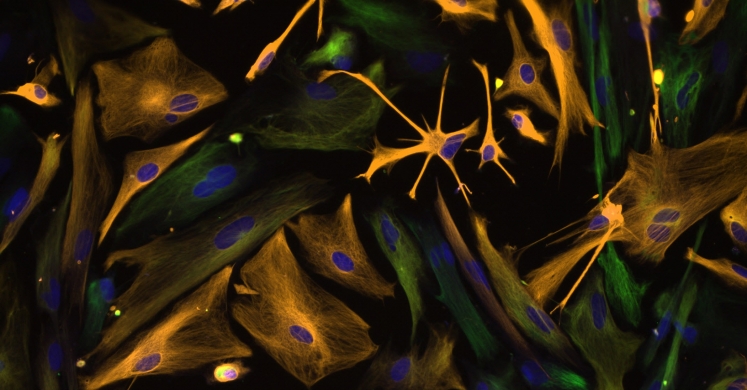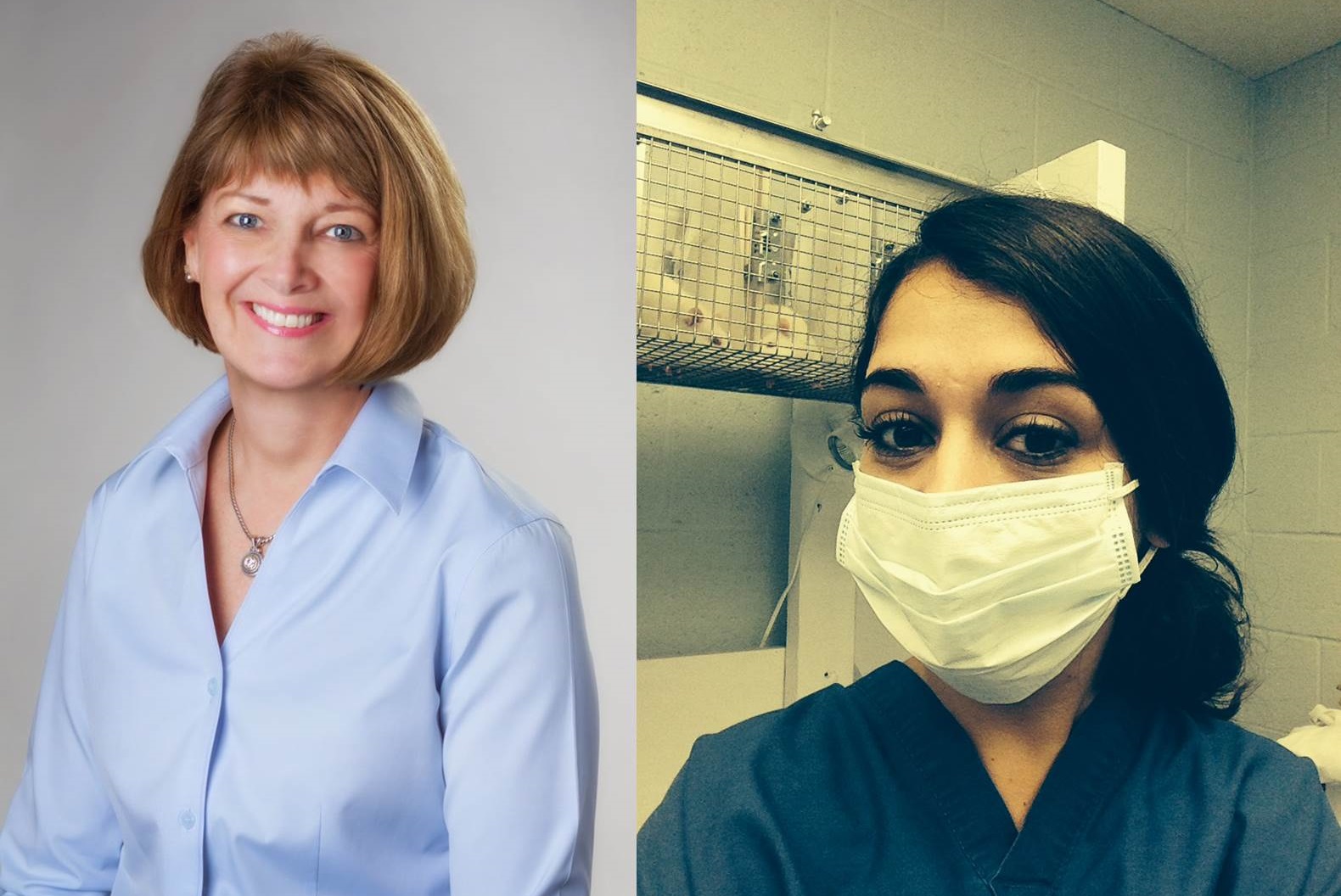Phipps Stories

Meet a Scientist: Andrea Stevens and Wendy Lomicka
For this month’s Meet a Scientist on Saturday, December 16, from 1:30 – 3:30 pm in the Tropical Forest, we have the pleasure of hosting two women in science from two very different career paths—so all of you students who are interested in the variety of science career possibilities, this will be a great week! Our first scientist is Andrea Stevens, doctoral candidate from Duquesne University studying the cellular basis of pain in the nervous system and the immune system. We also are excited to welcome Wendy Lomicka, an industry-based Sustainability Leader, who also is a student at Duquesne in their Environmental Science program.

Introduce yourself in five sentences or less:
Andrea: I am a PhD candidate Duquesne University working in Dr. John Pollock’s lab. We study the role of immune and neuronal cells in chronic pain. I completed my Master’s degree at Chatham University in conjunction with The University of Pittsburgh with a focus on Parkinson’s Disease. All of work thus far as a scientist, has centered around utilizing imaging techniques to study various parts of the nervous system. As a Pittsburgh local, I really enjoy spending time outdoors in the nearby state parks with my husband, baby girl, and dogs!
Wendy: In my current role as the Responsible Care and Sustainability Leader at NOVA Chemicals, I help the company to “take care of the people, processes, materials and places” that go into making chemicals and plastics. My role includes such things as creating the annual Sustainability Report, working on communication campaigns that promote safety and environmental stewardship, and getting out into the community with others to participate in river clean ups, recycling campaigns and student activities that promote science education. Creating new ways to solve interesting challenges and sharing that news with others is my long-standing passion, so I think of myself as a “science advocate.” In various roles, I’ve worked with chemists, material engineers, physicians, medical researchers, environmental scientists, safety specialists, students, and others to help “tell a story” as part of the process of transferring science and technology solutions to their everyday use. Outside of my professional interests, I enjoy my family, my faith community, rowing on the Allegheny River, and my canine companions.
What is your favorite part of your job?
Wendy: What I enjoy most about my work is that it indulges my natural tendencies toward curiosity, learning and creativity and that it puts them to good use in an immediate way in the world around us.
Andrea: My favorite part of my job is working with other scientists be able to constantly learn new information. I really love learning and this is a job that allows me to do so on a constant basis by presenting at national conferences and being a member of numerous professional organizations.
Why is Science Education important?
Andrea: Science education is important because science is the basis of everything! It’s important to learn how to hypothesize an idea and test it to see if it works. It’s something most people do all the time, unknowingly. Learning about different scientific topics also allows to be more educated in our everyday lives. Knowledge is power!
Wendy: The natural world and our human experience are gifts. Science allows us to study and learn in ways that protect, preserve and promote the world and human experience now and for those that follow.
Photo credit: NIH CC0

